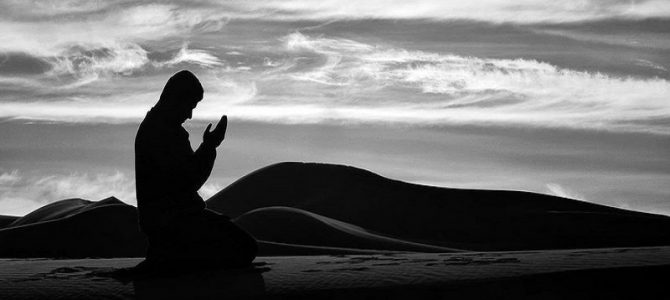Question 297: Assalam o alaikum, How do I know when exactly does prescribed time for maghrib prayer passes away? I.e. the moment after which maghrib should be prayed qadha. What are the Fixed Times of Daily Prayers?
Answer 297: There are three time periods allocated to every one of the five daily prayers that are as follows:
1- The specific period: the period in which no other prayer can be performed.
2- The common period: the period in which you can perform Dhuhr and Asr or Maghrib and Isha prayers. It must be noted that their order must be observed (at noon, the Dhuhr prayer must be done before Asr, and at night, the Maghrib prayer must be done before Isha).
3- The time of merit: The period which praying in has more thawab or reward.[1]
The time of the significance of Maghrib is from sunset till the disappearance of the redness which usually appears in the West after the sunset. The time of the significance of Isha prayers is from the time when the said redness disappears till completion of one-third of the night.
The due time for the Maghrib and Ishã’ prayers in ordinary circumstances is from Maghrib (evening) till midnight, out of which the time for Maghrib prayer is reserved from its beginning to the extent it is required for offering it, and the Ishã’ prayer for the last according to the circumstances of the person offering the prayer, and the time between them is common to both.
If a person does not offer both the (Maghrib and Ishã’) prayers until midnight in case of emergency due to sleep, forgetfulness, menstruation, etc., or deliberately, it is more cautious for him to offer both the prayers upto the beginning of the morning with the intention of what he owes.
In case the time left for beginning of the morning is not sufficient for offering both the prayers, he should, by way of precaution, offer the Ishã’ prayers. It is more cautious to offer both the compensatory prayers in succession after the due time.[2]
For further information in this regards, please refer to the following answer:
Index: Allocated time for offering Obligatory Prayers, answer 534.
Index: Three time periods allocated to each of the five daily prayers, answer 199.
[1] . Adopted from answer 199 (Index: Three time periods allocated to each of the five daily prayers).
[2] . Tahrir al-Wasilah of Imam Khomeini, Vol. 1, Chapter on Preliminaries of Prayer, Pg. 138, Q 6.



